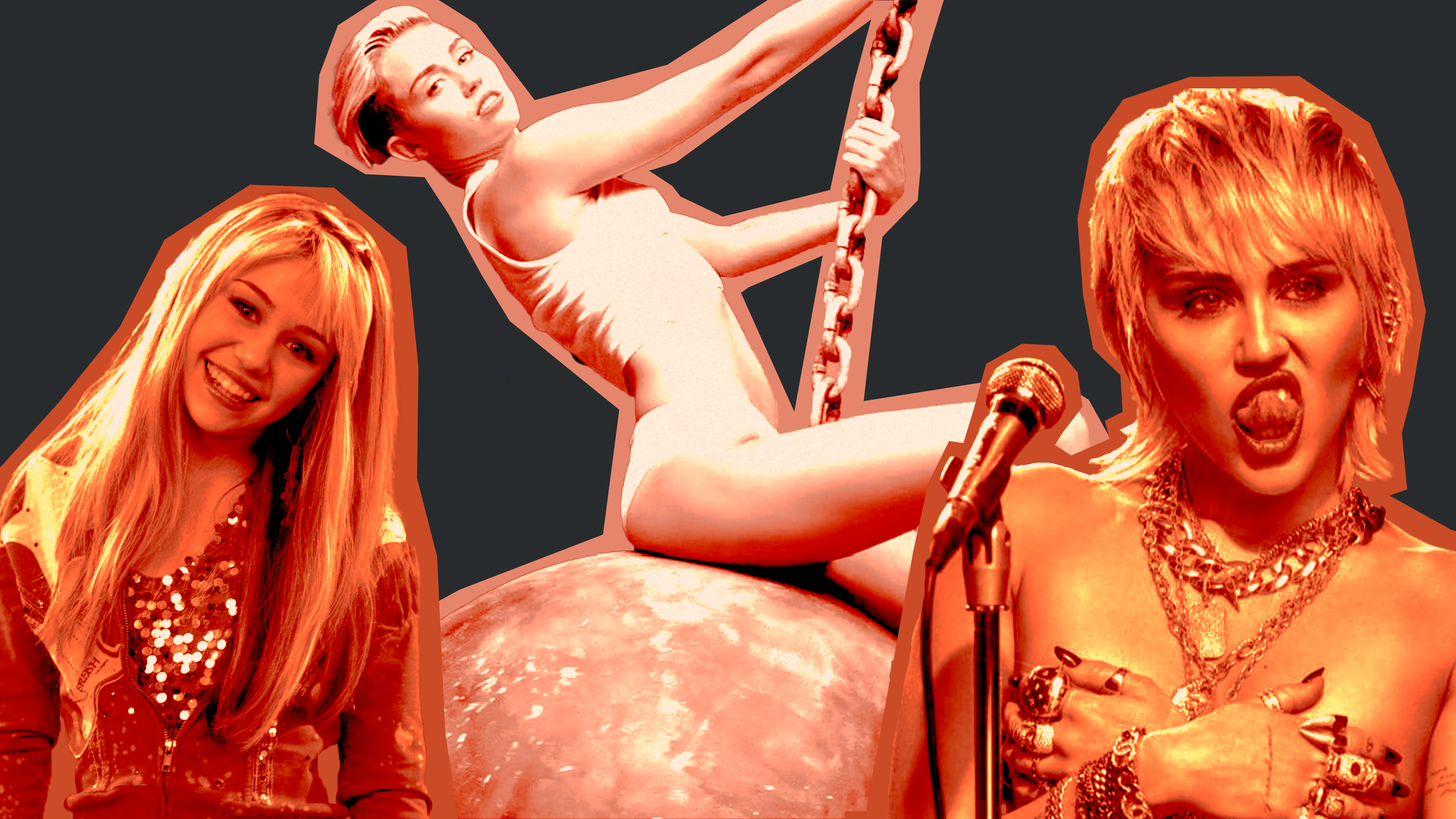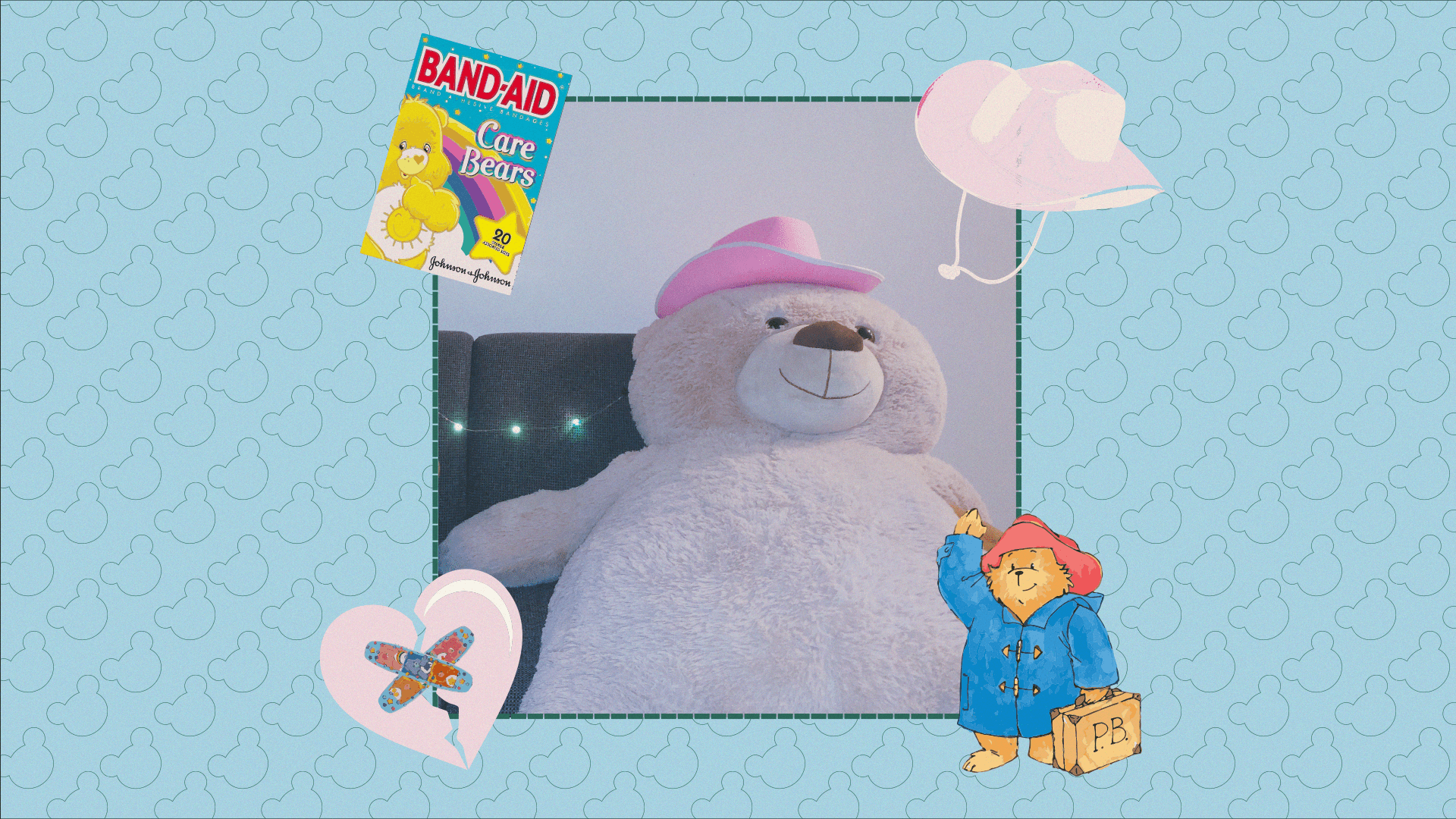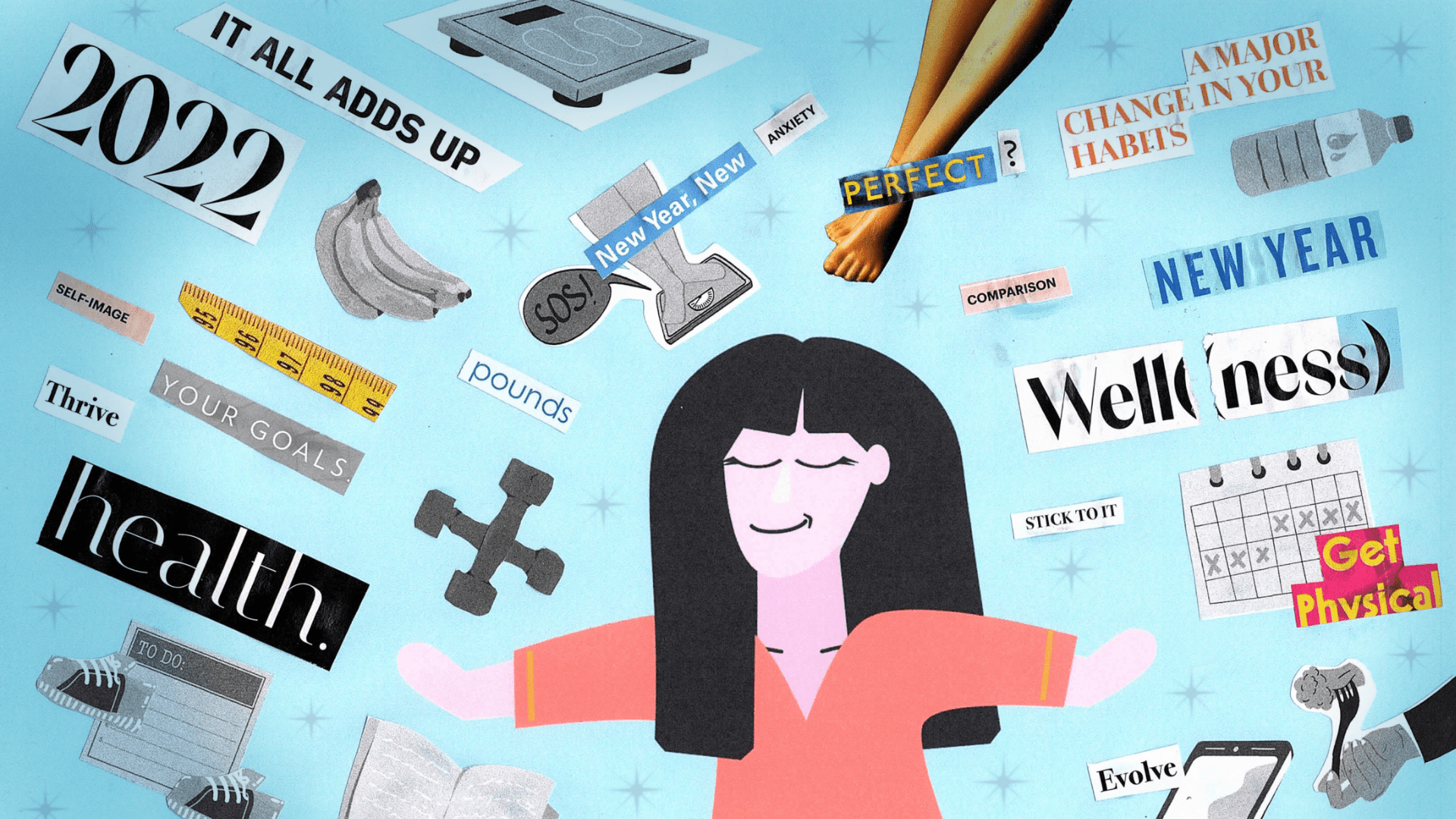
Nobody’s Perfect: Miley Cyrus and My Breakup with Perfectionism
Perfectionist tendencies are magnified in the age of COVID-19. Is everyone ok?
Like most pre-teens, I grew up watching Hannah Montana on Disney Channel. When the show premiered in 2006, its star, teeny-bopper pop princess Miley Cyrus, was the same age as me: a ripe, impressionable 13-year-old. Like Cyrus (and her alter-ego Hannah), I, too, was at the precipice of young womanhood — grappling with rising levels of hormones, whiteheads, and regrettable instant messages sent from my AIM screen name, “blinkiepink93XxX.”
As I navigated the choppy waters of quintessential teen awkwardness, I was startled to find respite within Cyrus’ character. She was chasing perfection, both as a “normal” school girl and as a rising rockstar, answering to conflicting sets of expectations. That dichotomy struck a chord with me: I was also living two lives. In one life, I masqueraded as a well-adjusted young woman who always brought home As. In the other, I was consumed by the self-destructive nature of my people-pleasing anxieties. Last year, in the midst of countless “unprecedented times” emails, the friction between those two realities became unsustainable, and I found myself on a frenzied search for solutions: anything — or anyone — that could help me feel normal. I never imagined it would be Miley Cyrus who got me there.
It’s hard to pinpoint why I started obsessing over being perfect, but I do know that it manifested in quite an ugly, physical way when I was 9 years old. After failing a fourth grade math test and my following full-blown freakout, my parents took me to a child psychiatrist, I was placed on anti-anxiety medication, and I watched my parents’ hearts break over and over — helpless. By the time I entered high school, the thought pattern had seeped into every aspect of my waking and subconscious life. I continued to panic over inconsequential comments (“Wow, I didn’t realize you were smart!”) and started ditching social events because the pressure to “perform” was too much to bear. Perfectionism had left me at a strangling impasse, flailing to grasp a standard that would forever evade me.
During my most malleable years, however, Cyrus’ show and music became the subliminal backdrop of my unglamorous teenage dream. Sitting cross-legged on the white shag carpet in my room, I’d listen to Cyrus on a loop as she belted out in a syrupy warble, “Nobody’s perfect / I gotta work it again and again / ’til I get it right.” But even in a sugar-coated anthem encouraging teens to liberate themselves from the chains of perfectionism, Cyrus sings of “work.” The message of “Nobody’s Perfect,” which spent seven weeks on Billboard’s Hot100 and infiltrated many a middle school sleepover party, preaches reflexive self-correction. Failure is acceptable, so long as you put in the work to fix your mistakes.
I followed along as Disney groomed Cyrus into the same squeaky clean cookie-cutter formula they have since applied to other pop stars, like Selena Gomez and Demi Lovato. I chased her stardom into theaters as she graduated to wholesome rom-coms, like The Last Song, and expanded her commercial empire. But Cyrus’ puritanical persona came crashing down with a backless Vanity Fair cover shot by Annie Leibovitz. Cyrus, 15 years old at the time, thought the photo was “pretty,” “really natural,” and “artsy,” but a reporter at The New York Post wrote the teenager, a “budding tartlet from Tennessee [who] hasn’t set foot inside a school for five years,” was “too dumb to know better” and that the famed photographer had posed Cyrus like “Lindsay Lohan Long Island trailer trash” (as Lana del Rey says, “Fuck The New York Post”). Fans and the media alike attacked Cyrus and her family for condoning such heathenous, naked behavior: displaying her back.
What was left of Cyrus’ virginal reputation dissolved into the smoke of the bong hit of 2011, which was captured in a leaked video (a “groundbreaking video of a teenager smoking a bong & saying dumb shit to their friends,” Cyrus teased in an Instagram post). While Cyrus has said she doesn’t “remember shit cause I was fucked the hell up,” the pop star was again attacked by fans and parents who expected her to be moralistic and pure — not the sativa-smoking spawn of Satan.

The curious thing about perfection is that it’s a moving target with shifting parameters. In the privileged sphere of adulthood, a “perfect” life no longer necessitates a white picket fence and a nuclear family, but securing a trendy Brooklyn loft, blessing the digital pages of a Forbes 30 Under 30 issue, or schmoozing in the circles of serial “she”-EOs.
In March of 2020, however, I lost my job. Having suffered an icy shock to my system, my mental health unraveled at a startling rate. I hardly had the energy to text back loved ones, and my reflection in the mirror usually unveiled mascara-lined trails of tears and pink, puffy eyelids. Knowing that I wasn’t alone — nearly 20.5 million other people in the country had also lost their jobs at the beginning of the pandemic — wasn’t enough to dissuade my steadily rising tidal wave of panic. If the goal was always to achieve perfection, and that perfection was tied to a perfect job and a perfect social life and perfect possessions, then losing a core component of that trifecta shatters the whole facade. Reading reductive articles that framed the perfectionistic condition as a simple mindset shift (i.e. a headline that reads “Is This Pandemic the End of Perfection?”) didn’t help.
But this deeply ingrained psychological pressure was crushing young women long before the pandemic. The successes and failures of the Y2K generation have been publicly quantified — in report cards, in gold star “good behavior” charts, in GPA rankings, and, now, in followers — since many of us skipped into kindergarten with Lisa Frank backpacks, and that transparency is traumatizing. And that same venomous pressure isn’t something that exists only in my brain. It trickles down to my chest making it difficult to breathe when anything goes wrong; it dictates the content of my day, forcing me to avoid tasks — like trying that tumbling class for beginners or making that precious family recipe for Welsh rarebit — that might result in failure; and it coerces me into actions performed only to impress others, like taking 35 selfies looking for an angle that doesn’t even resemble my face only to apply a filter and call it a day or spending money I don’t have on a Rent the Runway subscription so fellow New Yorkers might think I belong here. In being motivated by perfection, I seem to get further and further away from who I am really am.
Perfectionism, to me, often feels like our communal suffering, and it doesn’t seem to be getting any better in the wake of a global health meltdown. Add social media and body image issues to the mix, and you’ve got yourself a recipe for an average youngster with a lot of neuroses and no one specific to blame.
As it turns out, this apparent rise in perfectionism is an alarming sociological trend. In a 2019 American Psychological Association study authored by social psychologist Thomas Curran and his colleague Andrew P. Hill, Curran found perfectionism, which he defines as a “combination of excessively high personal standards and overly critical self-evaluations,” has increased at a staggering rate over the last 27 years. While every generation has its own standards of excellence, Curran has termed perfectionism an “epidemic” among millennials and Gen Z in particular. And perfectionist tendencies aren’t just magnified in the age of COVID. Curran said one in three young people are projected to report perfectionism and accompanying mental health disorders by 2050.
Curran works off of the model of multidimensional perfectionism, which includes three main elements: self-oriented perfectionism (how we see ourselves), socially prescribed perfectionism (the idea that we are being judged harshly by our peers), and other-oriented perfectionism (the harsh judgements we then impose on others). However, Curran calls socially prescribed perfectionism — grappling with the expectations we believe others impose on us — the “most debilitating” of the three. The study, which surveyed 41,641 American, Canadian, and British college students who completed the Multidimensional Perfectionism Scale between 1989
and 2016, found that college students continue to report higher levels of socially prescribed perfectionism in particular, and that they “may be increasingly more sensitive to perceived external pressures.”
“It’s hidden in plain sight,” Curran said in an interview with The Interlude. “What we’re not talking about, and what we should be talking about, is that there’s something underneath all of this perfectionism that is almost encouraged.”
Curran attributes the rise in reported perfectionism to a few different factors, including biological traits (hello, fellow sensitive people!) and increasingly controlling parenting styles. But if we’re all born into different circumstances, socioeconomic backgrounds, and with different upbringings, how did so many of us wind up in the same, soul-sucking place?
In the late 1970s, America shifted to our dear friend capitalism, Curran says. But unlike our parents’ generation — a.k.a. Baby Boomers and Gen Xers who might have Medicare and Medicaid to rely on in old age — capitalism has failed to provide young people with the same economic stability. To compensate, he says young people spend more on “image goods” and “status possessions,” like that always-sold-out Telfar Shopping Bag, syringes on syringes of Botox, and Cartier love bracelets, and we take to social media to showboat. Perfectionism, Curran says, is our generational coping mechanism.
But for young women, it’s even tougher.
“Millennial women are some of the most ‘successful’ women I work with, and also the most vicious because they’re the hardest on themselves,” Sarah Normandin, a licensed clinical social worker, told The Interlude. She believes that the rampant perfectionism we see in today’s young women, including Gen Z women, is the result of a “sick kind of capitalism with a dash of patriarchy.”
Like Curran, Normandin looks for clues in the 1960s and 1970s — a time when women (mainly white) were entering the workforce in droves. The term “imposter syndrome” was also coined by clinical psychologists Pauline Clance and Suzanne Imes during this period. Women felt insecure within a system “made to favor affluent white men,” and learned what I unfortunately know all too well: Perfectionism is a method for managing anxiety — or, according to Normandin, “It is anxiety.”
Among Normandin’s clients, the root of perfectionism is the desire to feel safe, loved, and accepted. So many women, she says, carry around the belief that if we are imperfect, then we are also unloveable. For women in the workplace, who have to be charming, intense, communicative, and helpful all at once, achieving professional perfection can be draining. For people of color and the LGBTQ+ community, being imperfect is a luxury many simply cannot afford within a market that, built on a racist and homophobic foundation, places whiteness and heteronormativity on a pedestal. And for Gen Z, many of whom are still growing up in a time when social media companies downplay how toxic their platforms can be for teen girls?
“I find that Gen Z women feel kind of at a loss. They grew up…in the golden age of influencer culture, which commodifies perfection through aspirational lifestyle ‘wellness’ content,” Normandin wrote in an email. “They are often hard on themselves because the majority of young women can’t live up to these impossible and predatory standards while going through one of the messiest and most confusing parts of human development.”
While there’s no quick fix — no “Three easy ways to combat your perfectionism!” lists that pack a life-changing punch — both experts agreed that therapy and a bit of self-compassion are a good place to start.
“When you fail, just breathe on it, ruminate on it, let it wash through you, and in that moment, just appreciate what it truly means to be human,” Curran said. “Because failure is fundamentally human.”

As I’m unlearning and recoding what it means to be an anxiety-riddled perfectionist in a capitalist society, there is only one universal truth I’m sure of: Miley Cyrus does not give a fuck.
Cyrus, who now shares photos of weed nugs atop her Hannah Montana album cover with 146 million of her closest friends on Instagram, has challenged our world’s tilted expectations of her stardom from the moment she straddled that first wrecking ball. Hopping back and forth from genre to genre and from “dancing with Molly” (or, as she says, “druggie whore”) to sobriety, Cyrus continues to shapeshift, refusing to be put in a box: one day, she’s being chased by UFOs, the next, she’s giving tours of her blow-up doll and dildo-adorned abode. “I never, ever said I was perfect,” Cyrus told Marie Claire in 2011. Messy, brazen, and untamed, she’s the antithesis of everything little girls are taught to be. It appears she has found something we were striving for all along: unqualified freedom.
In moments of insecurity, when I can’t snap out of the mind-numbing “I’m not good enough” loop, I’ll sit in my car, flick on my seat heater, and sink into the chummy intimacy induced by Cyrus’ newest album, Plastic Hearts. For me, Cyrus is a conduit for the type of boldness I thought I always lacked — stepping into her persona is an opportunity to escape the bounds of my own self-imposed dread.
For every fuck-up, every cancellation, and every misstep, Cyrus has continued to rebirth herself from the rubble of angry fans’ vitriolic grenades, reappearing onstage time and time again to show us her ass cheeks (which she clearly loves, and so do I), her undeniable talent, and her “you can’t shake me” resilience. But her haters are always there in the shadows and in the bowels of her comment section. And it’s that rebellion — the rebellion that allows her to simply ignore the shit-talking as best she can, accept that she will always be “too much” for some, and move forward — that ignited a tiny rebellious fire in me, too.
Cyrus’ I-don’t-give-a-fuckery pushed me to quit a profession that never fit quite right. Her out-of-the-blue rock-and-roll shag reminded me that hair always grows back, so I chopped mine off and let my hair revel in its natural curly-cues after straightening and frying it for decades. Her insistence on showcasing her body in every which way empowered me to stop hiding from my own — to be proud of the feminine curves I had so often hidden beneath constricting underwire bras and shapewear. And after all of those changes, somehow prompted by a finicky pop star adored by millions and reviled by even more, I started to understand what bravery really looks like. Bravery is showing up as yourself — with all of your quirks and contradictions and messiness in tow.
But in idolizing Cyrus, I realize that I’m inflicting my own set of expectations on her: In relying on her to be perfectly imperfect, I’ve failed her too. “Everyone’s suffering is different,” she told People earlier this year. “I wear a lot of glitter and I wear a lot of armor, and I also wear my heart on my sleeve, and it gets broken a lot.”
I’ve spent the last year trying to undo the perfect image I spent my entire life curating, as well as the images I project on others. Rather than centering accomplishments and clout, that means attempting to center my life on genuine joy, severed from the chokehold of hustle culture. Unlike the churn-and-burn fatigue of our everyday work lives, this process is more of a slow burn. Popping into weekly therapy sessions, tackling knee-jerk thought patterns by jotting down niceties in a compassion journal (i.e. “You are doing just fine, bb”), and “forgetting” my Apple watch on my nightstand from time to time have all helped me loosen my grip on a self that never was, and never will be, the real me. The work is unending, but it’s done for me and only me.
Perfection is an idea we’ve long been sold, but the clutches of my checkered coin purse are officially clamped shut. And to those who expect me to be something I’m not — well, as Cyrus would say, “Eat shit.”



